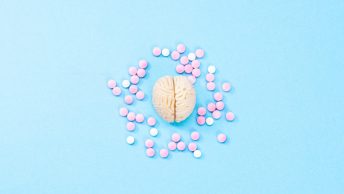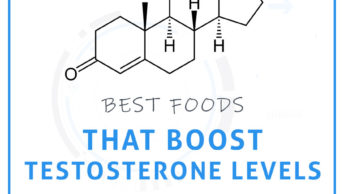Quick summary
- The relationship between diet and testosterone has been established, with pro-inflammatory diets being linked to lower testosterone levels and a higher risk of testosterone shortage.
- High-fiber diets may harm testosterone levels, as seen in a study where normal middle-aged men who switched to a low-fat, high-fiber diet experienced significant reductions in testosterone levels.
- Testosterone enhancers, like those made of natural ingredients, can be a solution for enhancing testosterone levels, with benefits including improved moods, energy levels, and ability to concentrate.
The relationship between diet and testosterone has been established. The foods you eat may either lower or raise your testosterone levels, which also is influenced by your genetics.
Based on the findings of a study published in 2021, males who consumed more pro-inflammatory diets (rich in refined carbs & saturated fats) have lower overall testosterone levels than men who consumed fewer pro-inflammatory foods.
In addition, those who consumed the most pro-inflammatory foods had a 29.6 percent higher risk of developing testosterone shortage than those who consumed the least pro-inflammatory foods.
So are high fat and high fiber diet are the reason behind low testosterone? Let’s find out the truth.
Is low testosterone a cause of high fat or high fiber diet? Myth or Fact
According to research, there is a link between inflammation and decreased testosterone production.
Furthermore, following a pro-inflammatory diet is connected with gaining weight and an elevated risk of obesity, both of which are linked to reduced testosterone levels.
Luteinizing hormone (LH) is released by the brain and is subsequently transported to the testicles, where it increases testosterone production there.
Testosterone is involved in a variety of tasks, ranging from muscle development to enhancing desire. If you want to increase your testosterone levels, sticking to a high-fiber diet is more detrimental than beneficial.
According to a study undertaken by experts, high-fiber diets may harm testosterone levels.
According to the findings, scientists discovered that normal middle-aged men who switched from their typical diet to something like a low-fat, high-fiber diet saw significant reductions in testosterone levels.
How to enhance testosterone other than a good diet?
Consuming testosterone supplements can be an ideal option to enhance T-levels irrespective of the kind of diet.
The testosterone enhancers like Testogen, TestRX, and Testofuel are made of natural ingredients that help a male body produce more testosterone.
The manufacturer has thoroughly evaluated the ingredients to ensure that they have the least amount of negative effects.
One of the most important ingredients is D-aspartic acid, the naturally occurring amino acid that helps restore normal testosterone levels.
This substance enhances the production of luteinizing hormone by the body, which stimulates Leydig cells’ activity.
Men who take these top supplements will notice an improvement in their moods, energy levels, and ability to concentrate within a week of taking the supplement.
Conclusion
As it is stated that experts are still in the process of finding the reason behind low T-levels related to a high-fat or high fiber diet.
However, what is very well known is that it is always good to testosterone boosters for increasing your sex drive and for your overall well-being.
So, worry less about the fiber and fat content of your food, and invest more in natural testosterone boosters for your overall health.







